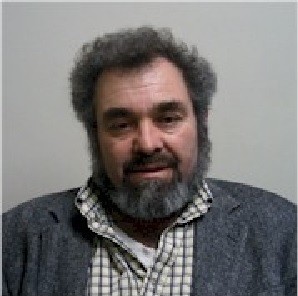Stevens 'Senior Design' Students Collaborate with Startups

All computer science majors at Stevens Institute of Technology (Hoboken) learn about professional software development before graduating because they have to take the course CS 423 — known colloquially as “senior design.”
For the past 15 years, students in senior design have worked on software projects for outside groups, usually nonprofits, government agencies and Stevens itself.
But beginning this semester, several are gaining entrepreneurial experience by working for startups.
David Klappholz, the professor who teaches senior design, said it gives students an opportunity to learn about software development from many angles beyond coding.
“The life cycle includes a lot more than just writing code,” Klappholz said. “There’s requirements engineering and analysis, system design, risk management and more. The point … is to put students through the entire life cycle.”
The course also prepares students for a professional life after they graduate. “In order to climb the corporate ladder, it’s very important to know the whole life cycle, not just the programming,” Klappholz said. “Students who want to rise to management levels really need to understand the whole life cycle.”
Klappholz said he is interested in adding startups to the course’s list of clients because many Stevens students have their own startup ideas. “It gives them the extra benefit of learning entrepreneurship, a skill that many will want to use after graduation,” he said.
This semester some 45 students are taking senior design. They have been working in teams on nine different projects, including those for four startups. One nonstartup project involves creating a front end for the Smart City app that Stevens is building for Hoboken. Another entails building back-end code for other cities, to allow them to develop their own, similar apps.
Klappholz lets the students choose their projects, and this year he was able to match all of them with their first or second choices. He said a good project team should include someone with strong interpersonal communications skills to give presentations, a team member who is good at problem solving and one or two who really enjoy writing code.
The students are not paid for their work — school regulations forbid it — but they do receive course credit. In addition, Klappholz has helped arrange for those working with startups to earn equity in the new companies. By receiving equity, they have an extra incentive to do their best work.
Klappholz found the startups by attending and pitching at tech meetups, including the large NJ Tech Meetup group that gathers monthly on the Stevens campus. He said he is interested in working with new startups in future semesters.
One startup participating in senior design is Proxemic Technologies (Fort Lee). Proxemic is creating a video game to help college students in STEM courses retain information.
“The students are developing the narrative structure and game-play components for a gesture-based, role-playing game,” Proxemic cofounder and Stevens faculty member Brian Moriarty said.
“Working with artists from other disciplines, including animation and music composition, they are integrating the various technical components required for a fully functional game. We think they have developed an engaging narrative that will result in a game that is both informative and entertaining,” added Moriarty.
One student working with Proxemic, Bradley Crusco, said the video-game project had led to an ideal match between the entrepreneurs and the students.
“To make a compelling educational game for students in that age group is not an easy task,” Crusco said. “I think Proxemic realizes that the best way to go about that is to have the target audience build the game they’d want to play.”
Crusco, a senior, is a member of the Stevens Cooperative Education program. Through that program, students complete their coursework in five years, which allows time for internships. He said senior design in particular is an effective use of the format.
“It’s great to be able to take concepts from class and actually get to apply them in a professional environment,” he said. “My co-op positions gave me corporate experience, but working with Proxemic has been like a crash course in what freelance and startup work is like.”

